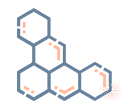Mew, N., Simpson, K., Gropman, A., Lanpher, B., Chapman, K., & Summar, M. (2021). Urea Cycle Disorders Overview. Retrieved 5 April 2021, from http://www.ncbi.nlm.nih.gov/books/NBK1217
Batshaw ML, Tuchman M, Summar M, et al. A longitudinal study of urea cycle disorders. Mol Genet Metab 2014; 113:127.
Leonard, J., & Morris, A. (2002). Urea cycle disorders. Seminars In Neonatology, 7(1), 27-35. doi: 10.1053/siny.2001.0085
Matsumoto, S., Häberle, J., Kido, J., Mitsubuchi, H., Endo, F., & Nakamura, K. (2019). Urea cycle disorders-update. Journal of human genetics, 64(9), 833–847. https://doi.org/10.1038/s10038-019-0614-4
Häberle, J., Burlina, A., Chakrapani, A., Dixon, M., Karall, D., Lindner, M., Mandel, H., Martinelli, D., Pintos-Morell, G., Santer, R., Skouma, A., Servais, A., Tal, G., Rubio, V., Huemer, M., & Dionisi-Vici, C. (2019). Suggested guidelines for the diagnosis and management of urea cycle disorders: First revision. Journal of inherited metabolic disease, 42(6), 1192–1230. https://doi.org/10.1002/jimd.12100
Lilliu, F. (2010). Treatment of organic acidurias and urea cycle disorders. The Journal Of Maternal-Fetal & Neonatal Medicine, 23(sup3), 73-75. doi: 10.3109/14767058.2010.509932





